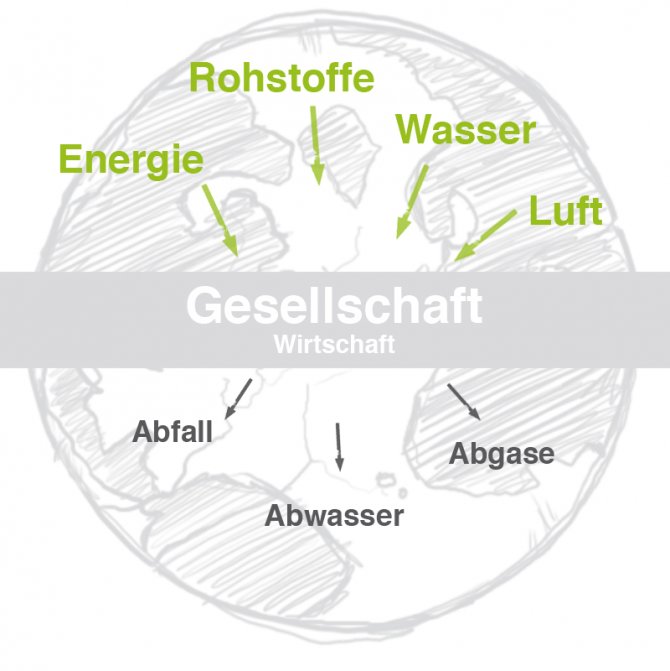Ecological dimension
Treating nature in such a way that all people can live in a clean environment
Ecology is the dimension, in which most attention is given to political discussions. The central problem area of ecological sustainability is climate change, which designates global warming of the Earth triggered by man. Sustainability in relation to ecology means treating nature in such a way that a sound (clean) environment is safeguarded for all people on Earth.
Social metabolism
Starting point of assessment of ecological sustainability is the so-called social metabolism, which understands the Earth as a limited system of a materially closed global eco-system. Through increasing consumption of resources by man increasingly environmental problems occur, such as climate change, hole in the ozone layer, loss of biodiversity, erosion and desertification as well as pollution of soil, water and air.
Ecological footprint
The most-known indicator of consumption of natural resources is the so-called ecological footprint. It quantifies the question, how many renewable resources there are required by human consumption of products and services. This means that the consumption of material, land and energy is calculated in terms of space. The consumption of fossil energy sources is calculated in terms of the required CO2 absorption area, i.e. of the space of forests and oceans required. In the meantime, mankind annually consumes nearly 1.5 planets, with an increasing tendency.
More about this topic: www.my-footprint.at
Other indicators for measuring consumption of resources are, for instance, the water backpack, which indicates in relation to products how much water has been consumed in their production. Or the material backpack, also called ecological backpack, which calculates consumption of renewable and non-renewable raw materials for products or even for states.
“Austria as a living environment“
In the Austrian Strategy for Sustainable Development, the essential ecological targets are described in the chapter “Austria as a living environment”. It comprises the topic areas of environmental and climate conservation, preservation of biodiversity and landscapes, land management and regional development as well as mobility and traffic systems.
Social production and ecology
goodworks promote sustainable products made of renewable raw materials or recycled materials in a targeted manner, and thus afford a contribution towards active environmental conservation. Through procurement of regional cooperation partners, transport distances are reduced, and regional development is strengthened, especially because a large number of occupational projects are situated in rural regions lacking in infrastructure. Some social enterprises explicitly dedicate themselves to ecological social agriculture. Finally, the footprint of regionally produced products is clearly better than the one of globally imported products.

